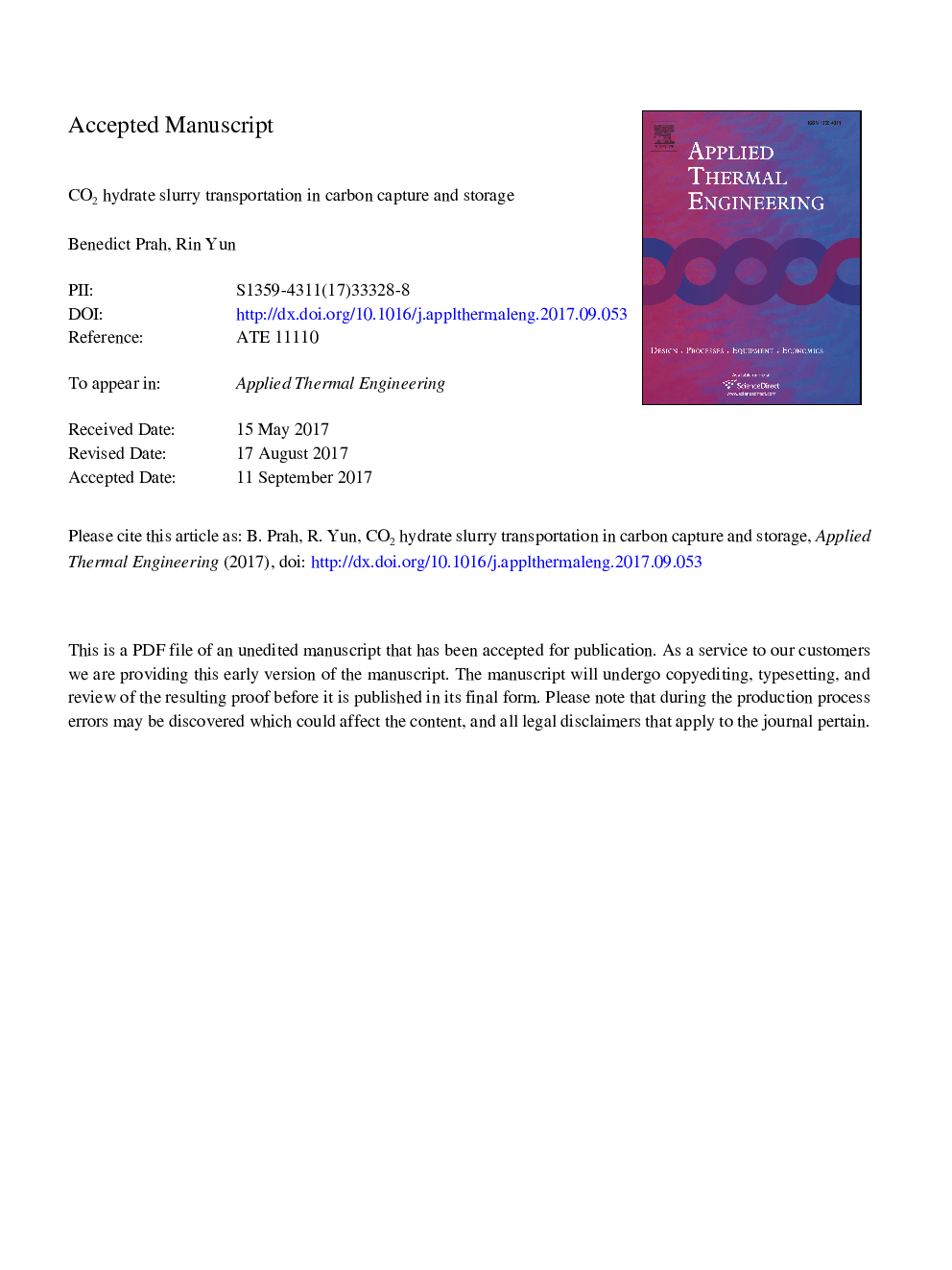| Article ID | Journal | Published Year | Pages | File Type |
|---|---|---|---|---|
| 7046630 | Applied Thermal Engineering | 2018 | 28 Pages |
Abstract
Based on a proposed hydrate-based gas separation and the utilization of this technology, CO2 hydrate slurry transportation in pipeline from capture plants to storage sites is proposed in this paper. Two different transport processes are considered in the present study. The concept of CO2 hydrate slurry transportation in pipelines has many advantages over the current approaches of CO2 transportation. Transferring CO2 in hydrate slurry status reduces energy input for transportation and eliminates of hydrate blockage in pipelines thus reducing the overall cost of gas transportation. The effect of CO2 hydrate slurry formation in the absence and presence of anti-agglomerants is investigated in an experimental flow loop. The effect of four low dosages of 0.3, 0.5, 0.7 and 1.0Â wt% of anti-agglomerant; Tween 80 (non-ionic surfactant) on CO2 hydrate is investigated. Discussions on CO2 hydrate formation kinetics, induction time, slurry density and slurry flow within the experimental loop are provided. In the experiment, hydrate mass fraction ranged from 8 to 32%. The result indicates that CO2 hydrate slurry flow and circulation in the flow loop is significantly enhanced with anti-agglomerant.
Related Topics
Physical Sciences and Engineering
Chemical Engineering
Fluid Flow and Transfer Processes
Authors
Benedict Prah, Rin Yun,
